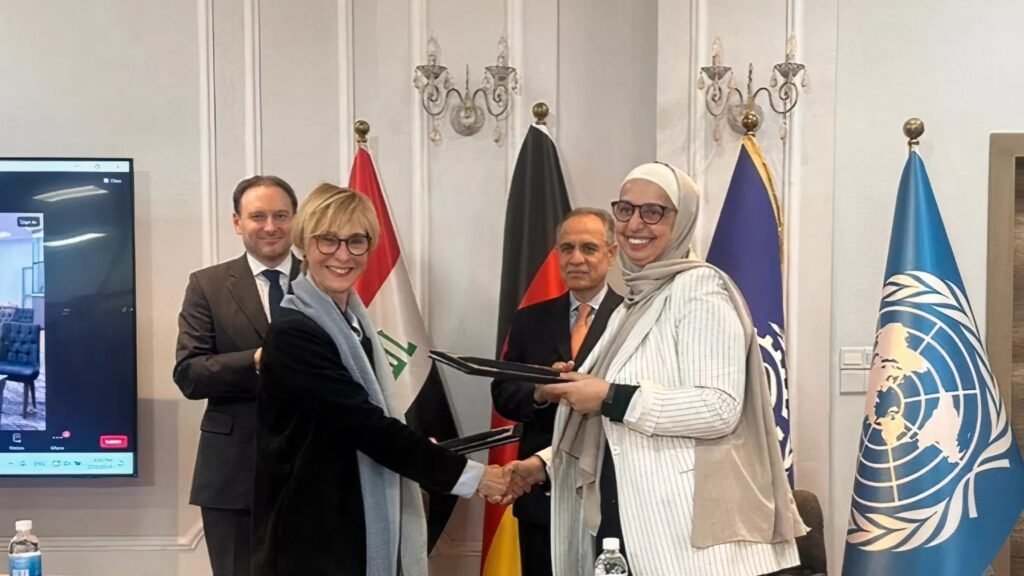SMEs: A Driving Force in Iraq’s Economic Resurgence
Small and medium-sized enterprises (SMEs) are pivotal to the economic revitalization of Iraq. Representing a significant portion of the private sector, SMEs Iraq contribute to job creation, innovation, and economic diversification. Understanding the role of SMEs in Iraq’s economic development involves examining the support programs designed to bolster these enterprises, the challenges they face, and the success stories that highlight their potential.
SMEs play a crucial role in Iraq’s economic development by driving growth in various sectors. They are instrumental in creating employment opportunities, particularly for the youth and women, thus aiding in social stability and economic inclusivity. By fostering innovation and entrepreneurship, SMEs help diversify the economy, reducing dependency on oil revenues and promoting sustainable growth.
Support Programs for SMEs
One notable initiative aimed at promoting SMEs in Iraq is the “Promotion of Small and Medium-Sized Enterprises (SMEs) in Iraq” project, launched by the International Labour Organization (ILO) and the German Development Bank (KfW). This program, which runs from January 2024 to December 2028, with a budget of €20,000,000, aims to empower SMEs by unlocking access to sustainable finance, particularly for youth and women entrepreneurs.

The project’s objectives are to contribute to Iraq’s private sector development by enhancing the productivity of SMEs and their potential for job creation. Key strategies include establishing a credit guarantee fund within the Iraqi Company for Banking Guarantees (ICBG), setting up SME windows in private financial institutions, and providing technical assistance and capacity building to financial institutions and SMEs.
By reducing collateral requirements for SME loans and providing capacity building for national partners, the project aims to enhance private sector development, improve SME productivity, and stimulate job creation. This initiative is expected to create 2,200 jobs, including 400 specifically for women, and sustain 3,000 jobs as a direct result of project loans by 2028.
Challenges Faced by SMEs in Iraq
Despite these support efforts, SMEs in Iraq face numerous challenges. Political instability and security concerns remain significant barriers to business operations. The unpredictable environment can deter investment and disrupt supply chains, making it difficult for SMEs to plan for the long term.
Additionally, bureaucratic hurdles and corruption can stifle business growth. Complex regulatory frameworks and inconsistent enforcement of laws create an uncertain business climate. Access to finance, although improved, is still limited for many SMEs, particularly those in the early stages of development. High-interest rates and stringent lending criteria can prevent small businesses from obtaining the necessary capital to expand.
Success Stories: Inspiring Growth and Innovation
Despite these challenges, several success stories demonstrate the potential SMEs Iraq have. One notable example is the tech startup Miswag, an e-commerce platform that has revolutionized online shopping in Iraq. Founded in 2014, Miswag has grown exponentially, providing a wide range of products and creating numerous job opportunities. Their success demonstrates the potential for innovation and growth within the Iraqi SME sector.
Another inspiring example is Orisdi, a prominent e-commerce platform that recently secured a significant investment round. This funding will bolster Orisdi’s growth and further highlight the potential of Iraq’s tech startups.
Conclusion
SMEs are the backbone of Iraq’s economy, contributing to employment, innovation, and diversification. While they face significant challenges, support programs from international organizations like the ILO and KfW, along with the resilience of local entrepreneurs, offer a pathway to growth. By continuing to invest in SMEs and addressing the barriers they face, Iraq can harness the full potential of these enterprises to drive economic development and stability.

